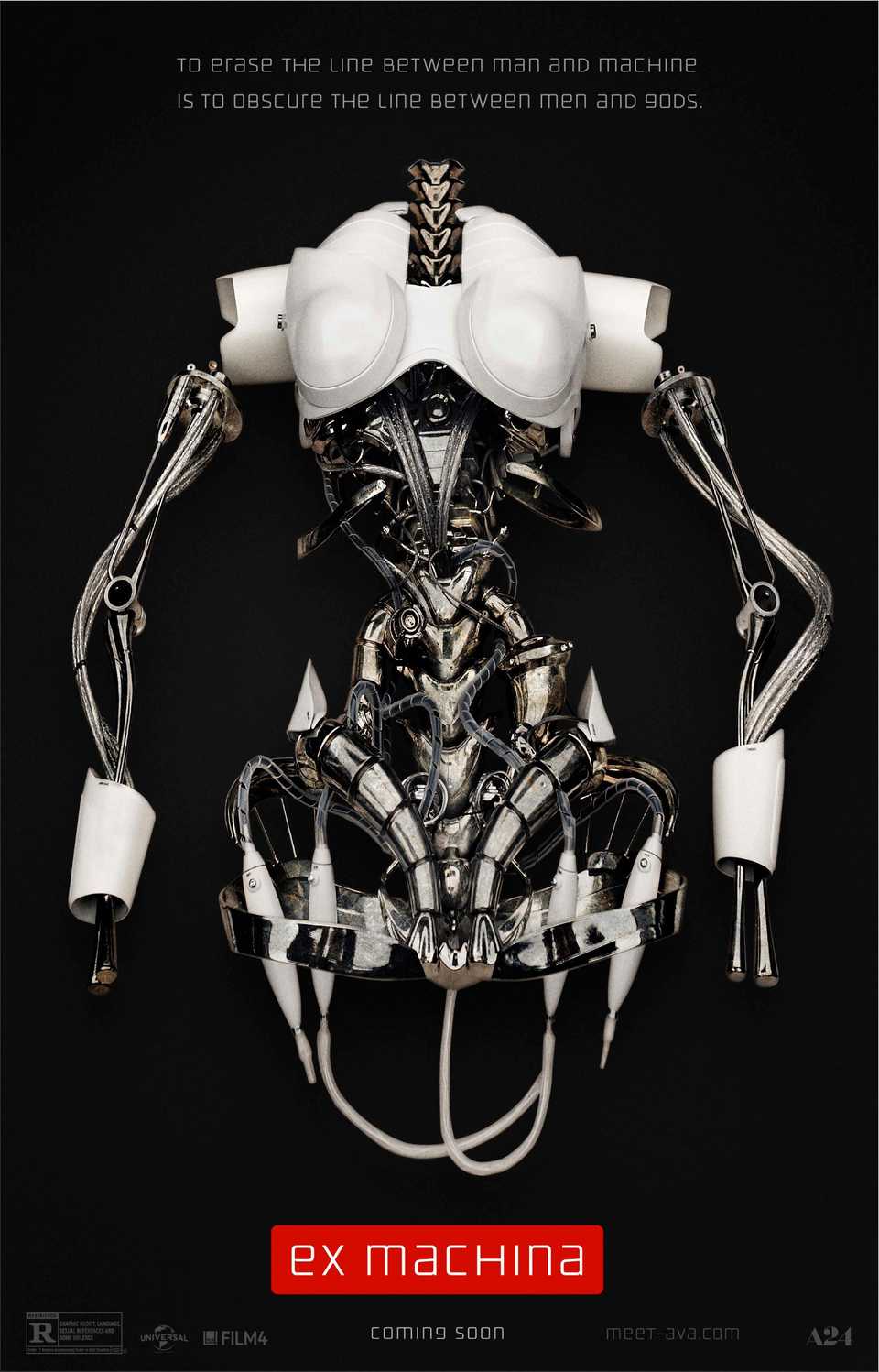Alex Garland made a name for himself with genre classics such as 28 Days Later and Sunshine, but his directorial debut in 2015 stands apart. The frequent Danny Boyle collaborator set off on his own, creating the modern sci-fi classic, Ex Machina. Garland wrote and directed the film that forced viewers to consider many issues of the day. Starring Domhnall Gleeson, Oscar Isaac, and Alicia Vikander, Ex Machina follows an up-and-coming programmer, Caleb (Gleeson), who gets invited to eccentric billionaire Nathan’s (Isaac) estate, where a state-of-the-art experiment is being conducted.
Nathan is the head of the company Caleb works for and is on the verge of cracking AI. Caleb wins a lottery in taking part in an experiment that will prove if Nathan’s new project is actually sentient or not. This new project goes by the name of Ava (Vikander), a female presenting robot whom Nathan created. Caleb’s role is to interact with her while Nathan measures her responses to determine if she has achieved the goal of self-actualization. Ex Machina had a strong setup on its own, but what follows in the hour and 48 minutes of screen time is a brilliant take on gender and the ethics of AI.
‘Ex Machina’ Is More Than Meets the Eye
When Ex Machina first premiered, it was topical, but now it is more relevant than ever. Artificial Intelligence has been in the conversation for quite some time, and the consequences of such an invention are being discussed. Going back as far as Dune and the machine war within its pages, Frank Herbert made his feelings about computers that could think incredibly transparent. Alex Garland had similar concerns as Ex Machina delves into the ethics of bringing something like this to life. Breaking the barriers of technology like this has been done before, and not always for the better. J. Robert Oppenheimer is used as an example in the film of how good intentions can go awry. The theoretical physicist was responsible for the creation of the atomic bomb, which destroyed Hiroshima and Nagasaki in World War II. It was supposed to be the war that ended all wars, but this technology only opened the door to more conflict.
Bringing someone like Ava to life is similarly irresponsible. Nathan created something he had no control over —a being that did not ask to come into existence. His intentions were simply to see if he could, not – as Jeff Goldblum says in Jurassic Park – because he should. Nathan unleashes Ava upon the world and deeply feels the repercussions of his actions. This theme dovetails perfectly with the feminist ideas present in the film. Garland uses Ava’s lack of bodily autonomy as a method of exploring how women are treated in reality.
Even when they are not robots created for the pleasure of men, women are often treated as such. Ava came into the world because some power-hungry inventor wanted to see the extent of his own talents. It had nothing to do with her. While she becomes sentient, she is confined to a cell and posed how Nathan wants her to. Even though Nathan doesn’t view her as human, her circumstances help her understand how women are treated in society. Even Caleb, who seems to treat Ava with concern, is also guilty of defining her by her femaleness. He puts her on a pedestal and only gives her value because of how she makes him feel. He doesn’t put stock in her for any other reason.
All of these facts culminate in the ending of Ex Machina that is terrifying as well as earned. Garland envisions a world where technology has gone too far and humanity needs to be careful about how it proceeds. When it first came out a decade ago, Ex Machina was a warning, and it has become eleven more resonant because no one seemed to listen. Viewers can catch this engaging sci-fi film by streaming it for free on Tubi.

Release Date
April 10, 2015
Runtime
108 minutes
Director
Alex Garland
Writers
Alex Garland

